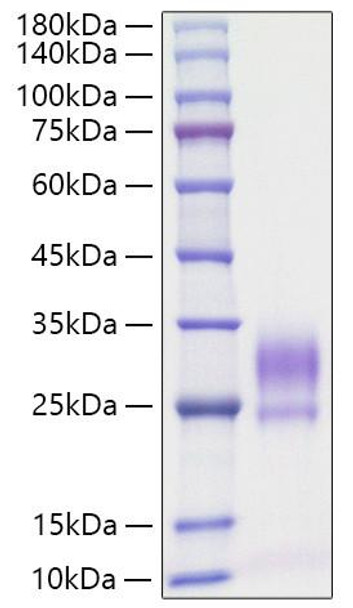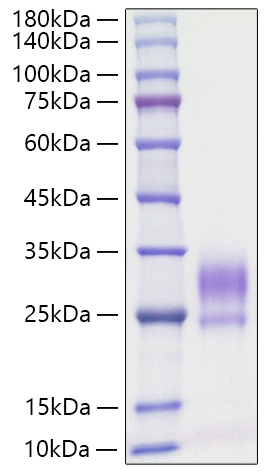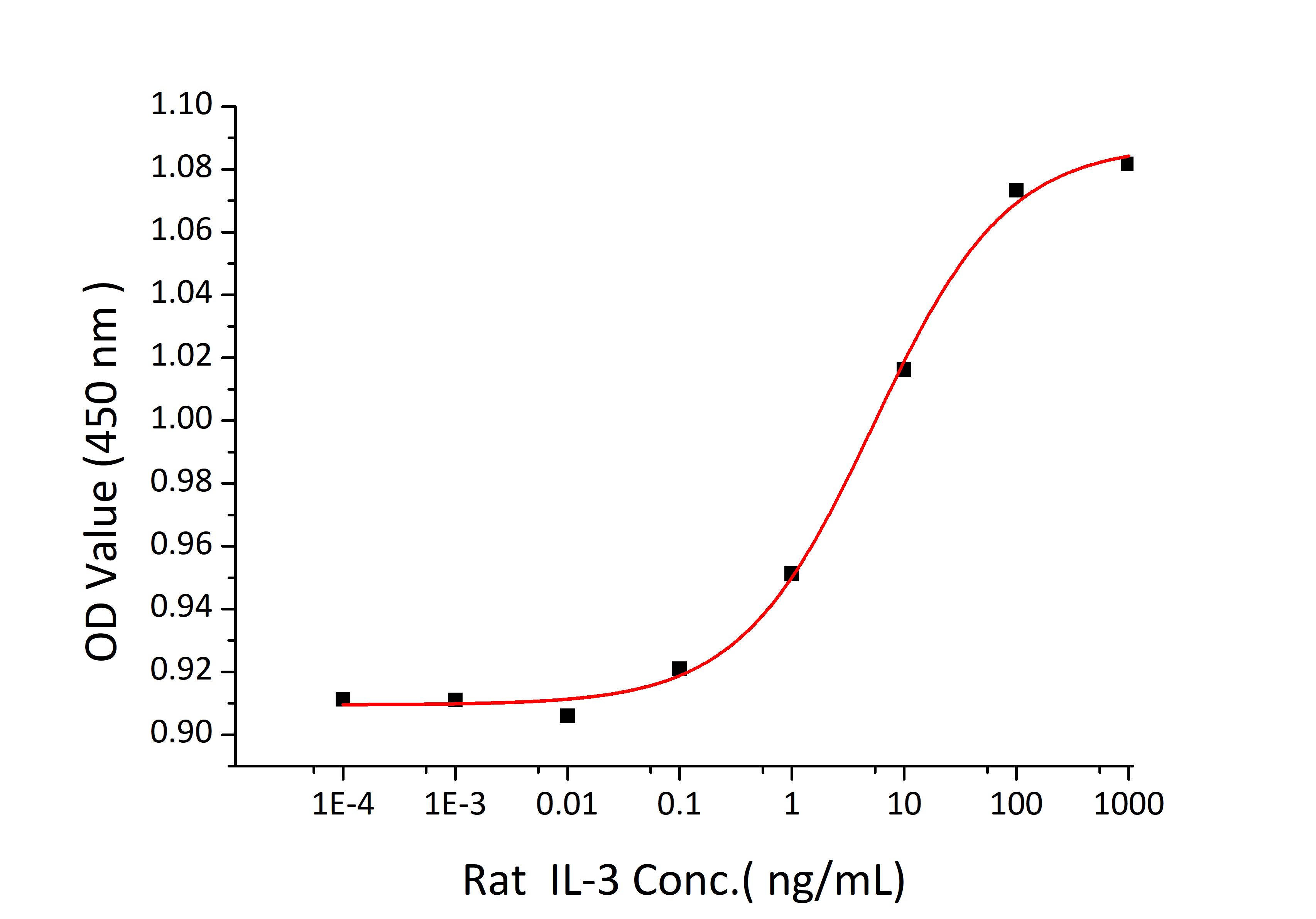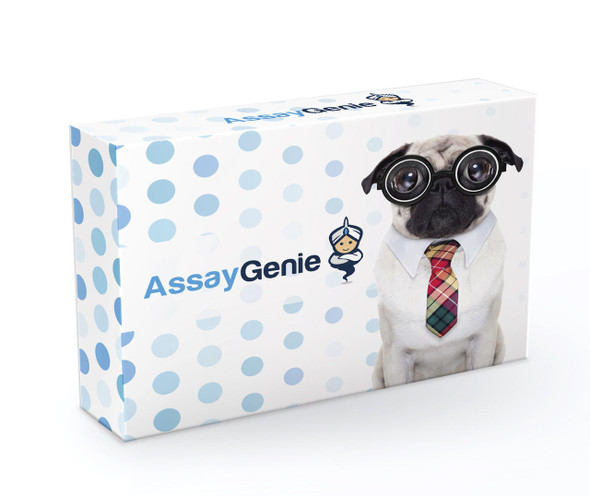Description
Recombinant Rat IL-3 Protein
The Recombinant Rat IL-3 Protein is a high-quality recombinant protein produced for advanced research applications in molecular biology and biotechnology. This protein serves as a critical reagent in various experimental contexts, including functional studies, binding assays, and therapeutic development programs, providing researchers with a standardized and reliable tool for investigating protein function and interactions.
This product (SKU: RPCB1205) is produced using HEK293 cells and features a C-His tag for convenient detection and purification. The protein exhibits a calculated molecular weight of 17.01 kDa with an observed molecular weight of 25-30 kDa under denaturing conditions, achieving ≥ 95 % as determined by SDS-PAGE.. Functional bioactivity has been validated through rigorous quality control assays, confirming its suitability for demanding research applications.
Key Features
| High Purity by Affinity Chromatography | |
| Mammalian & Bacterial Expression Systems | |
| High lot-to-lot consistency via strict QC |
| Product Name: | Recombinant Rat IL-3 Protein |
| SKU: | RPCB1205 |
| Size: | 10 μg , 20 μg , 50 μg , 100 μg |
| Reactivity: | Rat |
| Synonyms: | IL-3, IL3 |
| Tag: | C-His |
| Expression Host: | HEK293 cells |
| Calculated MW: | 17.01 kDa |
| Observed MW: | 25-30 kDa |
| Gene ID: | 24495 |
| Protein Description: | High quality, high purity and low endotoxin recombinant Recombinant Rat IL-3 Protein (RPCB1205), tested reactivity in HEK293 cells and has been validated in SDS-PAGE.100% guaranteed. |
| Endotoxin: | < 0.1 EU/μg of the protein by LAL method. |
| Purity: | ≥ 95 % as determined by SDS-PAGE. |
| Formulation: | Lyophilized from a 0.22 μm filtered solution of PBS, pH 7.4. |
| Bio-Activity: | Measured in a cell proliferation assay using NFS 60 mouse myelogenous leukemia lymphoblast cells. The ED 50 for this effect is 2.6‑10.6 ng/mL,corresponding to a specific activity of 9.4×10 4 ~3.85×10 5 units/mg. |
| Reconstitution: | Centrifuge the vial before opening. Reconstitute to a concentration of 0.1-0.5 mg/mL in sterile distilled water. Avoid vortex or vigorously pipetting the protein. For long term storage, it is recommended to add a carrier protein or stablizer (e.g. 0.1% BSA, 5% HSA, 10% FBS or 5% Trehalose), and aliquot the reconstituted protein solution to minimize free-thaw cycles. |
| Storage: | Store at -20℃.Store the lyophilized protein at -20℃ to -80 ℃ up to 1 year from the date of receipt. After reconstitution, the protein solution is stable at -20℃ for 3 months, at 2-8℃ for up to 1 week. |
IL3 (interleukin 3), also known as IL-3, is a potent growth-promoting cytokine that belongs to the IL-3 family. IL3/IL-3 also belongs to the group of interleukins. Interleukins are produced by a wide variety of body cells. The function of the immune system depends in a large part on interleukins, and rare deficiencies of a number of them have been described, all featuring autoimmune diseases or immune deficiency. The majority of interleukins are synthesized by helper CD4+ T lymphocytes, as well as through monocytes, macrophages, and endothelial cells. They promote the development and differentiation of T, B, and hematopoietic cells. IL3/IL-3 is capable of supporting the proliferation of a broad range of hematopoietic cell types. It is involved in a variety of cell activities such as cell growth, differentiation, and apoptosis. IL3/IL-3 has been shown to also possess neurotrophic activity, and it may be associated with neurologic disorders.








